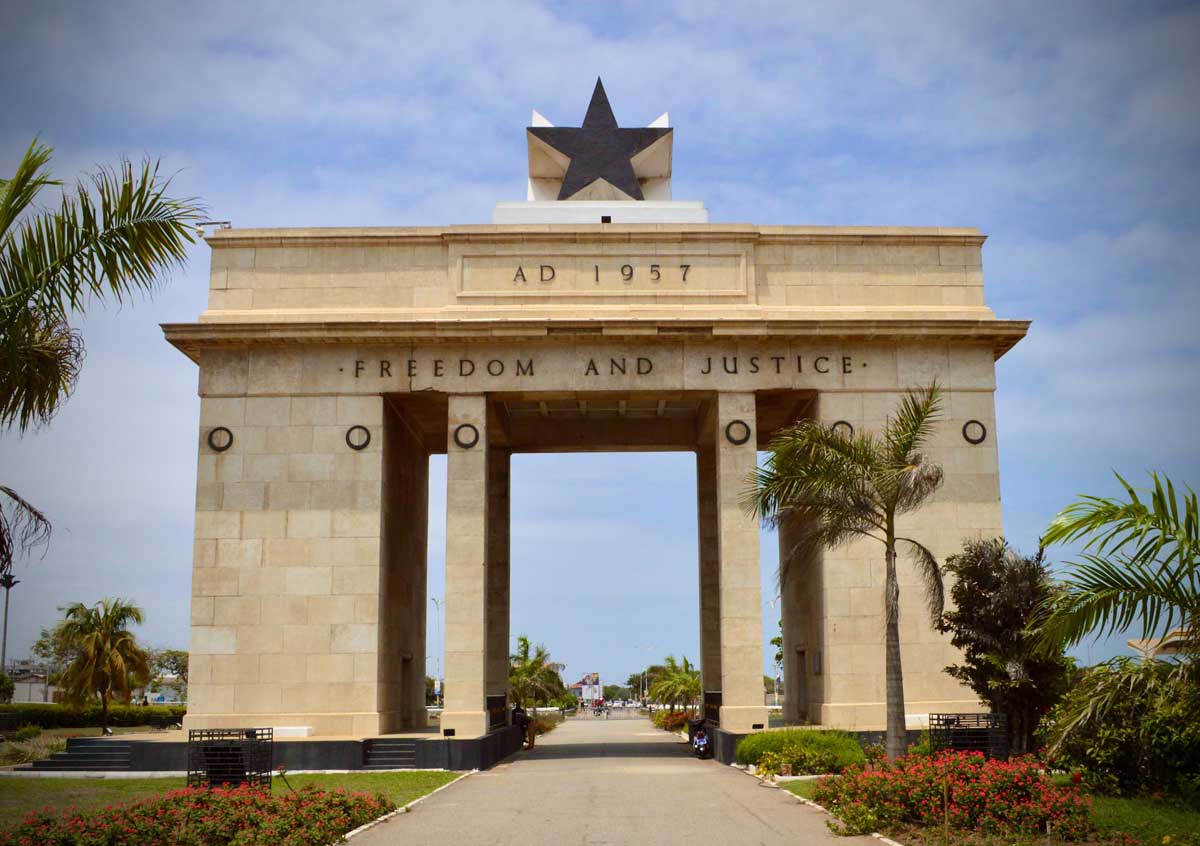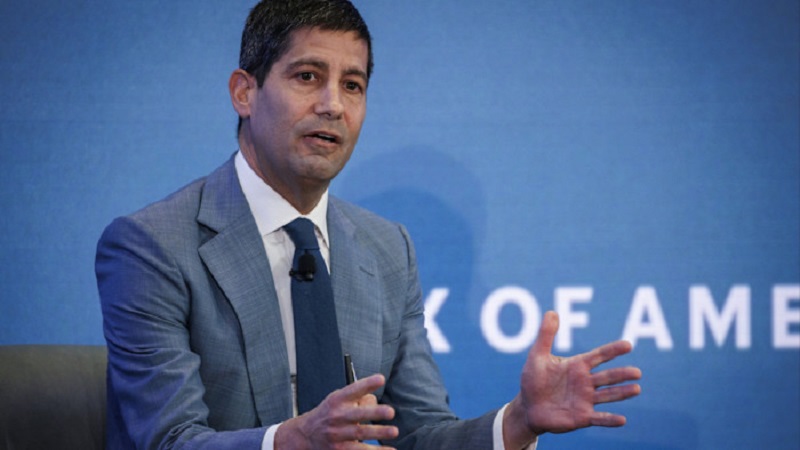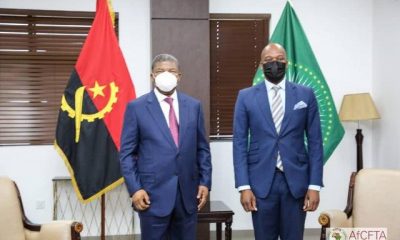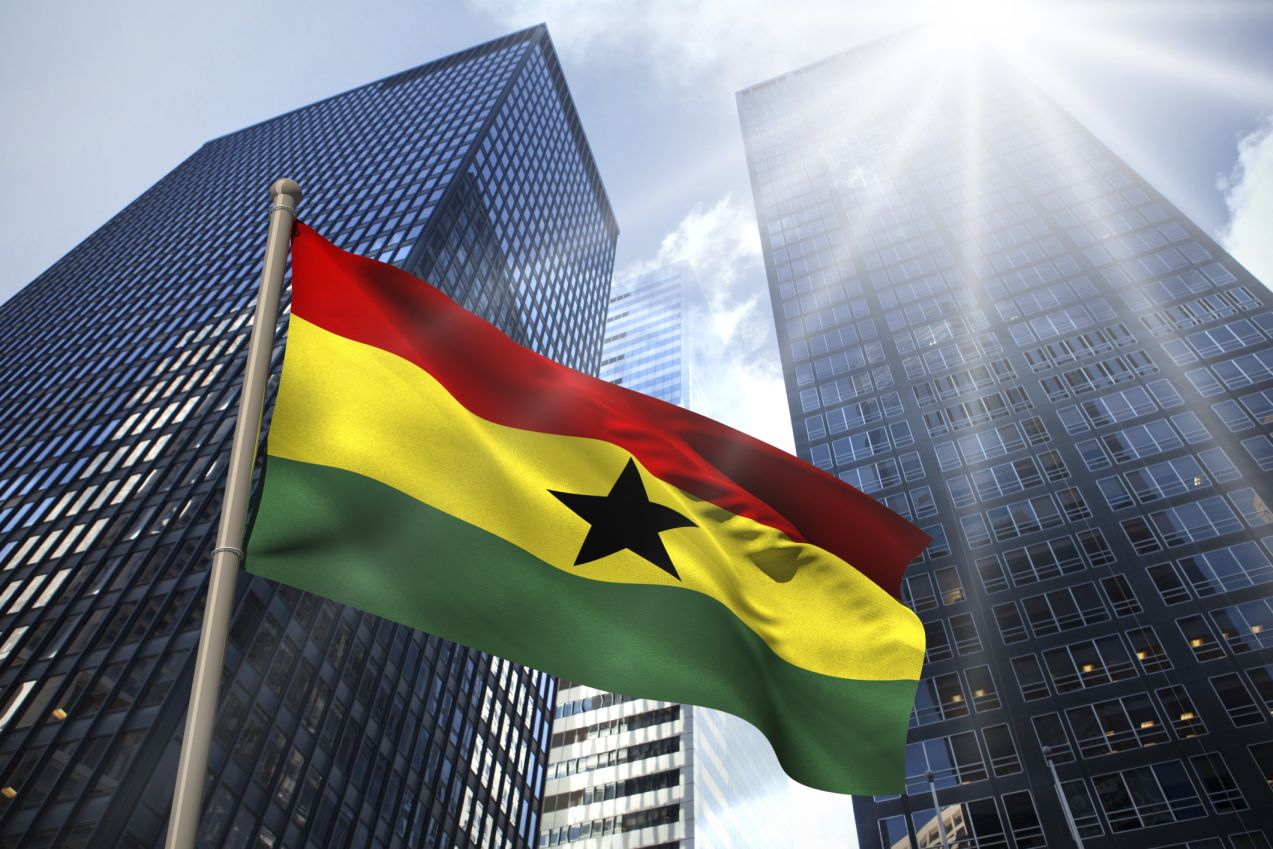World
Russia’s Diplomacy of Promises: The Case of Ghana

By Kestér Kenn Klomegâh
“Russia sets aside $1 billion to boost trade ties with Ghana” – simply made the media headline, but has serious implications for Russia’s diplomacy.
The published article described the bilateral relations as “sustainable partnership” between Russia and the Republic of Ghana. That was far back in January 2018 and given wide publicity to show Russia’s economic presence in Africa. Taking into cognizance the participating dignitaries including the Russian Ambassador Dmitry Suslov inside the Russian diplomatic premises, is most probably reflected in official documents of the Ministry of Foreign Affairs of the Russian Federation.
The Russian Federation set aside $1 billion to assist Russian companies wanting to invest in Ghana’s economy, in a move aimed at reinvigorating the sixty-year-old diplomatic relations that exist between the two countries and which were strongest in the Nkrumah era, archive research shows.
In commemorating the 60 years of established diplomatic relations with Ghana, and at that reception, Chairman of the Ghana Russian Business Development Council, Dr Lawrence Awuku-Boateng, explained that Ghanaian business people wanting do business with Russia would be assisted. The money would be disbursed through the Russian Export Centre.
“I am glad to announce that the Russian government has decided to assist all Russian companies that would like to work in Ghana, and Ghanaian companies who would like to do business with the Russians should contact the Embassy or Council for assistance,” Awuku-Boateng told the gathering.
Ambassador Suslov took his turn and said his country was committed to building “sustainable partnerships” with Ghana. “I can see Ghana now attracts more Russian businesses due to its stable democracy, sustainable macroeconomic performance and advanced business infrastructure. The importance of Ghana to Russia as an anchor partner country within the West Africa region is in a way being recognised and affirmed by the continuous presence of Russian delegations in the country,” he said.
Similarly, different Russian companies have been rushing for investment. With its stated purpose to create developing economic cooperation, Russian Railway Company, Geo Services, said it was ready to invest over $12.5 billion in the redevelopment of Ghana’s Railway network, a project the President of Ghana, Nana Akufo-Addo government has shown keen interest in realizing to boost the transport network (railway infrastructure) and ultimately the economy.
Geo-Services CEO, Sergey Kamnev, headed a delegation to attend the market-sounding event organized by the Ministries of Railways Development and Transport, on the development of the Eastern Railway Line and the Boankra Inland Port projects. The government was seeking to enter into a Public, Private Partnership arrangement for the two specific projects, for which an estimated US$2.4billion was required.
“With our own unofficial pre-feasibility conducted, we are assuring you that we will give Ghana the best. Considering our record, even in the area of fatalities within the industry, I can say that, with over 100years experience in railway in the world, we have recorded, I am sure, the least of fatalities,” Sergey Kamnev said at the event in Accra, Ghana.
“Having said that, if we are given the right to build the rail lines in Ghana, we are going to use Ghanaians to manufacture everything in Ghana, from executive wagons to bolt and knots. This is going to help us openly, at least, 20 factories in the country,” he added.
Eastern Railway Line was planned to complete by 2020. The Minister of Railway Development, Joe Ghartey, informed that the government set 2020 as the deadline for the completion of the Eastern Railway line project. The project will accommodate speed trains which have a speed of over 500 km per hour, making the journey faster and easier.
“The government is ready and feasibility is almost complete; that is why we are having this market-sounding event which is a meeting with investors to share ideas on how to build a better railway network in Ghana. I have directed that the project is completed by 2020, using speed trains. Ghana deserves the best and we, as a government, are willing to sign up for the best in this project for Ghana,” Minister Joe Ghartey stated.
The market sounding conference was attended by investors interested in partnering government in the rehabilitation and expansion of the country’s rail network from the south to Paga in the Upper East Region.
Ghana’s rail network that is currently operational, which is approximately 947 kilometres, is faced with an obsolete network and poor track infrastructure, resulting in the closure of greater part of the Western and Eastern lines and the entire Central line, leading to a high incidence of derailments that lead to loss of operational hours and damage to rolling stock.
The revamping of the railways sector was expected to happen hand-in-hand with the construction of the Boankra Inland Port, strategically located near Kumasi, to ease the movement of goods to the northern parts of the country and neighbouring landlocked countries.
Perhaps the most important way forward beside the official interaction, and in order to enhance further relations between the two countries, the Russian Federation has endorsed creating the Ghana-Russian Business Development Council to help in linking up business, education and culture.
Early October 2021, within the framework of the official visit to Ghana, the Head of the Secretariat of the Russia-Africa Partnership Forum, Ambassador-at-Large Oleg Ozerov, participated in discussions between the Association of Economic Cooperation with African States (AECAS) and the Ghana-Russia Business Development Council. According to reports, the ceremony was also attended by the current Ambassador of the Russian Federation in Ghana, Sergei Berdnikov.
The two parties signed a Memorandum of Understanding which stipulates developing and strengthening bilateral cooperation. The focus is to promote Russian companies’ products and services on the African market, to share expertise and exchange information in order to create favourable conditions for the development of Russia-Ghana relations.
On the other hand, critics say Russian officials consider it inexpedient to deal with well-established agencies and organizations such as the Ghana Export Promotion Council, Ghana Export Authority, Ghana Investment Promotion Centre, the Chamber of Commerce and Industry et cetera. These business entities make the entire process of trading quite easy and convenient for the business parties involved by liaising with other agencies to simplify documentation and import/export procedures as well as customs and freight carriers in the country.
Another important issue critics singled out in their discussions was the importance of the Russia-Ghana Permanent Joint Commission for Cooperation (PJCC) created several years ago for ensuring and strengthening bilateral relations in the political, economic, trade, technical and cultural spheres between the two countries. At least, Russia and Ghana are looking forward to expanding trade and investment exchanges using the mechanism of the Intergovernmental Commission on trade-economic and scientific-technical cooperation.
During the session of the Russia-Ghana Permanent Joint Commission for Cooperation (PJCC) held in Saint Petersburg in May, the both Foreign Affairs Ministers of Russia and Ghana agreed to speed up work on agreements and memoranda that will strengthen the legal framework of cooperation. Further agreed to encourage business circles, chambers of commerce and industry of the two countries to continue and intensify direct contacts and frequent interactions.
Our monitoring and interviews show that not everybody is highly-satisfied with the current approach toward Africa. In an interview conducted by this author, Shirley Ayorkor Botchwey, the Minister of Foreign Affairs and Regional Integration explains explicitly that “Russia and Ghana have excellent diplomatic relations, which have been developed over the years, precisely more than 30 years. Russian Federation started in 1991, after the collapse of the Soviet era. Although, for a relationship lasting this long, one would have expected it to move past where it is now. In short, there is still room for improvement.”
Despite the policy challenges and shortcomings, Ghana is still open to all the support that it could get from its external friends and development partners in the nation-building drive, particularly in the nationwide industrialization programme of the New Patriotic Party (NPP) administration. Ghana could benefit a lot from the rich experiences of Russia, which has advanced knowledge, in the area of industrialization, she underscored in the interview discussion.
An undeniable and acknowledgeable fact is that Russia plans to boost multifaceted relations with Africa. As pointed out in a policy report last November, Russia’s approach is practically marked by a high degree of inconsistency and lacks effective systematic coordination on several important issues with Africa. The report points to shortsightedness and little desire to face the rapidly changing political and economic realities in Africa.
According to that report, high-level meetings have increased but the share of substantive issues remains extremely minimal, and worse so far there were few definitive results from the unprecedented huge number of high-level official meetings. The report indicates clearly that Russia’s possibilities are overestimated both publicly and in closed negotiations. It further stresses the lack of “information hygiene” at all levels of public speaking among the main flaws of Russia’s policy on Africa.
Nevertheless, according to the policy experts’ assessment of the situation, Russia needs to shift steadily towards new paradigms – first to move away from the most often stereotypical narratives, and frequent criticisms of other key external players. And second to seriously begin implementing, especially in this crucial time of global geopolitical changes and emerging new order, some of its own decade-old pledges and promises, and take concrete steps in fulfilling those several bilateral agreements signed with individual African countries.
The report provides useful recommendations aim at closing the gap between mainstream policies, how to remove the policy pitfalls and turning a new page by adopting a well-refined approach toward Africa. The authoritative 150-page report was researched and prepared by 25 Russian policy experts headed by Professor Sergei Karaganov who is currently the Honorary Chairman of the Presidium of the Council on Foreign and Defence Policy. The report titled – Situation Analytical Report – was publicly presented at the premises of TASS Information News Agency in November 2021.
World
Today’s Generation of Entrepreneurs Value Flexibility, Autonomy—McNeal-Weary

By Kestér Kenn Klomegâh
The Young African Leaders Initiative (YALI) is the United States’ signature step to invest in the next generation of African leaders. Since its establishment in 2010 by Obama administration, YALI has offered diverse opportunities, including academic training in leadership, governance skills, organizational development and entrepreneurship, and has connected with thousands of young leaders across Africa. This United States’ policy collaboration benefits both America and Africa by creating stronger partnerships, enhancing mutual prosperity, and ensuring a more stable environment.
In our conversation, Tonya McNeal-Weary, Managing Director at IBS Global Consulting, Inc., Global Headquarters in Detroit, Michigan, has endeavored to discuss, thoroughly, today’s generation of entrepreneurs and also building partnerships as a foundation for driving positive change and innovation in the global marketplace. Here are the excerpts of her conversation:
How would you describe today’s generation of entrepreneurs?
I would describe today’s generation of entrepreneurs as having a digital-first mindset and a fundamental belief that business success and social impact can coexist. Unlike the entrepreneurs before them, they’ve grown up with the internet as a given, enabling them to build global businesses from their laptops and think beyond geographic constraints from day one. They value flexibility and autonomy, often rejecting traditional corporate ladders in favor of building something meaningful on their own terms, even if it means embracing uncertainty and financial risk that previous generations might have avoided.
And those representing the Young African Leaders Initiative, who attended your webinar presentation late January 2026?
The entrepreneurs representing the Young African Leaders Initiative are redefining entrepreneurship on the continent by leveraging their unique perspectives, cultural heritage, and experiences. Their ability to innovate within local contexts while connecting to global opportunities exemplifies how the new wave of entrepreneurs is not confined by geography or conventional expectations.
What were the main issues that formed your ‘lecture’ with them, Young African Leaders Initiative?
The main issues that formed my lecture for the Young African Leaders Initiative were driven by understanding the importance of building successful partnerships when expanding into the United States or any foreign market. During my lecture, I emphasized that forming strategic alliances can help entrepreneurs navigate unfamiliar business environments, access new resources, and foster long-term growth. By understanding how to establish strong and effective partnerships, emerging leaders can position their businesses for sustainable success in global markets. I also discussed the critical factors that contribute to successful partnerships, such as establishing clear communication channels, aligning on shared goals, and cultivating trust between all parties involved. Entrepreneurs must be proactive in seeking out partners who complement their strengths and fill gaps in expertise or resources. It is equally important to conduct thorough due diligence to ensure that potential collaborators share similar values and ethical standards. Ultimately, the seminar aimed to empower YALI entrepreneurs with practical insights and actionable strategies for forging meaningful connections across borders. Building successful partnerships is not only a pathway to business growth but also a foundation for driving positive change and innovation in the global marketplace.
What makes a ‘leader’ today, particularly, in the context of the emerging global business architecture?
In my opinion, a leader in today’s emerging global business architecture must navigate complexity and ambiguity with a fundamentally different skill set than what was previously required. Where traditional leadership emphasized command-and-control and singular vision, contemporary leaders succeed through adaptive thinking and collaborative influence across decentralized networks. Furthermore, emotional intelligence has evolved from a soft skill to a strategic imperative. Today, the effective modern leader must possess deep cross-cultural intelligence, understanding that global business is no longer about exporting one model worldwide but about genuinely integrating diverse perspectives and adapting to local contexts while maintaining coherent values.
Does multinational culture play in its (leadership) formation?
I believe multinational culture plays a profound and arguably essential role in forming the kind of leadership required in today’s global business environment. Leaders who have lived, worked, or deeply engaged across multiple cultural contexts develop a cognitive flexibility that’s difficult to replicate through reading or training alone. More importantly, multinational exposure tends to dismantle the unconscious certainty that one’s own way of doing things is inherently “normal” or “best.” Leaders shaped in multicultural environments often develop a productive discomfort with absolutes; they become more adept at asking questions, seeking input, and recognizing blind spots. This humility and curiosity become strategic assets when building global teams, entering new markets, or navigating geopolitical complexity. However, it’s worth noting that multinational experience alone doesn’t automatically create great leaders. What matters is the depth and quality of cross-cultural engagement, not just the passport stamps. The formation of global leadership is less about where someone has been and more about whether they’ve developed the capacity to see beyond their own cultural lens and genuinely value differences as a source of insight rather than merely tolerating them as an obstacle to overcome.
In the context of heightening geopolitical situation, and with Africa, what would you say, in terms of, people-to-people interaction?
People-to-people interaction is critically important in the African business context, particularly as geopolitical competition intensifies on the continent. In this crowded and often transactional landscape, the depth and authenticity of human relationships can determine whether a business venture succeeds or fails. I spoke on this during my presentation. When business leaders take the time for face-to-face meetings, invest in understanding local priorities rather than imposing external agendas, and build relationships beyond the immediate transaction, they signal a different kind of partnership. The heightened geopolitical situation actually makes this human dimension more vital, not less. As competition increases and narratives clash about whose model of development is best, the businesses and nations that succeed in Africa will likely be those that invest in relationships characterized by reciprocity, respect, and long-term commitment rather than those pursuing quick wins.
How important is it for creating public perception and approach to today’s business?
Interaction between individuals is crucial for shaping public perception, as it influences views in ways that formal communications cannot. We live in a society where word-of-mouth, community networks, and social trust areincredibly important. As a result, a business leader’s behavior in personal interactions, their respect for local customs, their willingness to listen, and their follow-through on commitments have a far-reaching impact that extends well beyond the immediate meeting. The geopolitical dimension amplifies this importance because African nations now have choices. They’re no longer dependent on any single partner and can compare approaches to business.
From the above discussions, how would you describe global business in relation to Africa? Is it directed at creating diverse import dependency?
While it would be too simplistic to say global business is uniformly directed at creating import dependency, the structural patterns that have emerged often produce exactly that outcome, whether by design or as a consequence of how global capital seeks returns. Global financial institutions and trade agreements have historically encouraged African nations to focus on their “comparative advantages” in primary commodities rather than industrial development. The critical question is whether global business can engage with Africa in ways that build productive capacity, transfer technology, develop local talent, and enable countries to manufacture for themselves and for export—or whether the economic incentives and power irregularities make this structurally unlikely without deliberate policy intervention.
World
Russia Expands Military-Technical Cooperation With African Partners

By Kestér Kenn Klomegâh
Despite geopolitical complexities, tensions and pressure, Russia’s military arms and weaponry sales earned approximately $15 billion at the closure of 2025, according to Kremlin report. At the regular session, chaired by Russian President Vladimir Putin on Jan. 30, the Commission on Military and Technical Cooperation with Foreign Countries analyzed the results of its work for 2025, and defined plans for the future.
It was noted that the system of military-technical cooperation continued to operate in difficult conditions, and with increased pressure from the Western countries to block business relations with Russia. The meeting, however, admitted that export contracts have generally performed sustainably. Russian military products were exported to more than 30 countries last year, and the amount of foreign exchange exceeded $15 billion.
Such results provide an additional opportunity to direct funds to the modernization of OPC enterprises, to the expansion of their production capacities, and to advanced research. It is also important that at these enterprises a significant volume of products is civilian products.
The Russian system of military-technical cooperation has not only demonstrated effectiveness and high resilience, but has created fundamental structures, which allow to significantly expand the “geography” of supplies of products of military purpose and, thus strengthen the position of Russia’s leader and employer advanced weapons systems – proven, tested in real combat conditions.
Thanks to the employees of the Federal Service for Military Technical Cooperation and Rosoboronexport, the staff of OPC enterprises for their good faith. Within the framework of the new federal project “Development of military-technical cooperation of Russia with foreign countries” for the period 2026-2028, additional measures of support are introduced. Further effective use of existing financial and other support mechanisms and instruments is extremely important because the volumes of military exports in accordance with the 2026 plan.
Special attention would be paid to the expansion of military-technological cooperation and partnerships, with 14 states already implementing or in development more than 340 such projects.
Future plans will allow to improve the characteristics of existing weapons and equipment and to develop new promising models, including those in demand on global markets, among other issues – the development of strategic areas of military-technical cooperation, and above all, with partners on the CIS and the CSTO. This is one of the priority tasks to strengthen both bilateral and multilateral relations, ensuring stability and security in Eurasia.
From January 2026, Russia chairs the CSTO, and this requires working systematically with partners, including comprehensive approaches to expanding military-technical relations. New prospects open up for deepening military-technical cooperation and with countries in other regions, including with states on the African continent. Russia has been historically strong and trusting relationships with African countries. In different years even the USSR, and then Russia supplied African countries with a significant amount of weapons and military equipment, trained specialists on their production, operation, repair, as well as military personnel.
Today, despite pressure from the West, African partners express readiness to expand relations with Russia in the military and military-technical fields. It is not only about increasing supplies of Russian military exports, but also about the purchase of other weapons, other materials and products. Russia has undertaken comprehensive maintenance of previously delivered equipment, organization of licensed production of Russian military products and some other important issues. In general, African countries are sufficient for consideration today.
World
Trump Picks Kevin Warsh to Succeed Jerome Powell as Federal Reserve Chair

By Adedapo Adesanya
President Donald Trump has named Mr Kevin Warsh as the successor to Mr Jerome Powell as the Federal Reserve chair, ending a prolonged odyssey that has seen unprecedented turmoil around the central bank.
The decision culminates a process that officially began last summer but started much earlier than that, with President Trump launching a criticism against the Powell-led US central bank almost since he took the job in 2018.
“I have known Kevin for a long period of time, and have no doubt that he will go down as one of the GREAT Fed Chairmen, maybe the best,” Mr Trump said in a Truth Social post announcing the selection.
US analysts noted that the 55-year old appear not to ripple market because of his previous experience at the apex bank as Governor, with others saying he wouldn’t always do the bidding of the American president.
If approved by the US Senate, Mr Warsh will take over the position in May, when Mr Powell’s term expires.
Despite having argued for reductions recently, “Warsh has a long hawkish history that markets have not forgotten,” one analyst told Bloomberg.
President Trump has castigated Mr Powell for not lowering interest rates more quickly. His administration also launched a criminal investigation of Powell and the Federal Reserve earlier this month, which led Mr Powell to issue an extraordinary rebuke of President Trump’s efforts to politicize the independent central bank.
-

 Feature/OPED6 years ago
Feature/OPED6 years agoDavos was Different this year
-
Travel/Tourism9 years ago
Lagos Seals Western Lodge Hotel In Ikorodu
-

 Showbiz3 years ago
Showbiz3 years agoEstranged Lover Releases Videos of Empress Njamah Bathing
-

 Banking8 years ago
Banking8 years agoSort Codes of GTBank Branches in Nigeria
-

 Economy3 years ago
Economy3 years agoSubsidy Removal: CNG at N130 Per Litre Cheaper Than Petrol—IPMAN
-

 Banking3 years ago
Banking3 years agoSort Codes of UBA Branches in Nigeria
-

 Banking3 years ago
Banking3 years agoFirst Bank Announces Planned Downtime
-

 Sports3 years ago
Sports3 years agoHighest Paid Nigerian Footballer – How Much Do Nigerian Footballers Earn





















